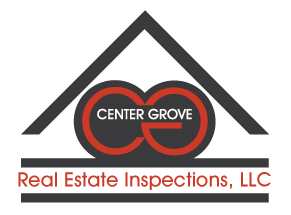Buying a home is an exciting process, but it can also come with its fair share of concerns. Even after you’ve found your dream home, you still must get through the final stages of negotiation, which includes getting a home inspection.
What things should you be looking for in the inspector’s report? And which of these is significant enough to call for renegotiation or backing out of your deal? Here are four things you should be especially wary of when reading your home inspection report.
Major Defects
Your inspection report will let you know if there are significant problems you need to know about in the home. These include any structural failures, cracks in the foundation, excessive wood rot, sewer issues and significant defects in any of the electrical, mechanical or structural components of the home.
Problems That Could Lead to Major Defects
Some apparently minor issues can be indicators of more serious problems in the future. Any signs of past water issues in the home should be a red flag, for example, as water damage can contribute to other structural problems and be very expensive to repair. Insufficient drainage, worn roofing, improperly installed flashing, damaged gutters, inadequate ventilation and any evidence of water intrusion should be examined further so that you can understand the full extent of the damage.
Health or Safety Hazards
There are some things in an inspection report that can constitute hazards to your family’s health and wellness. Significant mold, asbestos insulation, lead paint or outdated electrical wiring could all cause injury, sickness or even death. Make sure your inspector tests for the presence of noxious gases like radon and carbon monoxide, too. While things like railings and stairs can be repaired, ensure that all decks, porches and landings are structurally sound.
Finance, Insurance or Occupancy Hazards
Some issues could prevent you from being able to finance, insure or take occupancy of the house right away. For example, some foreclosed properties may have incurred damaged that includes stripped fixtures and appliances, making it difficult to move in right away. Other issues, like lead pipes and asbestos, may make it hard to finance or insure your home. Do-it-yourself repairs, home additions that are not up to code, damaged chimneys and cracks in the foundation can also be deal breakers for mortgage brokers and insurance companies.
Read your inspection report carefully and consider your options. Not all of these are deal breakers, but you should know what you’re in for. To learn more about any of the potential issues that are covered in an inspection report from Center Grove Inspections, feel free to give us a call or contact us online today!

You made a good point that wood rot is something that can break a home inspection for a home buyer. One of my dreams is to have my own wood cabin to serve as a vacation home that I can use any time. Finding a home inspector that is an expert on assessing wood would surely come in handy.